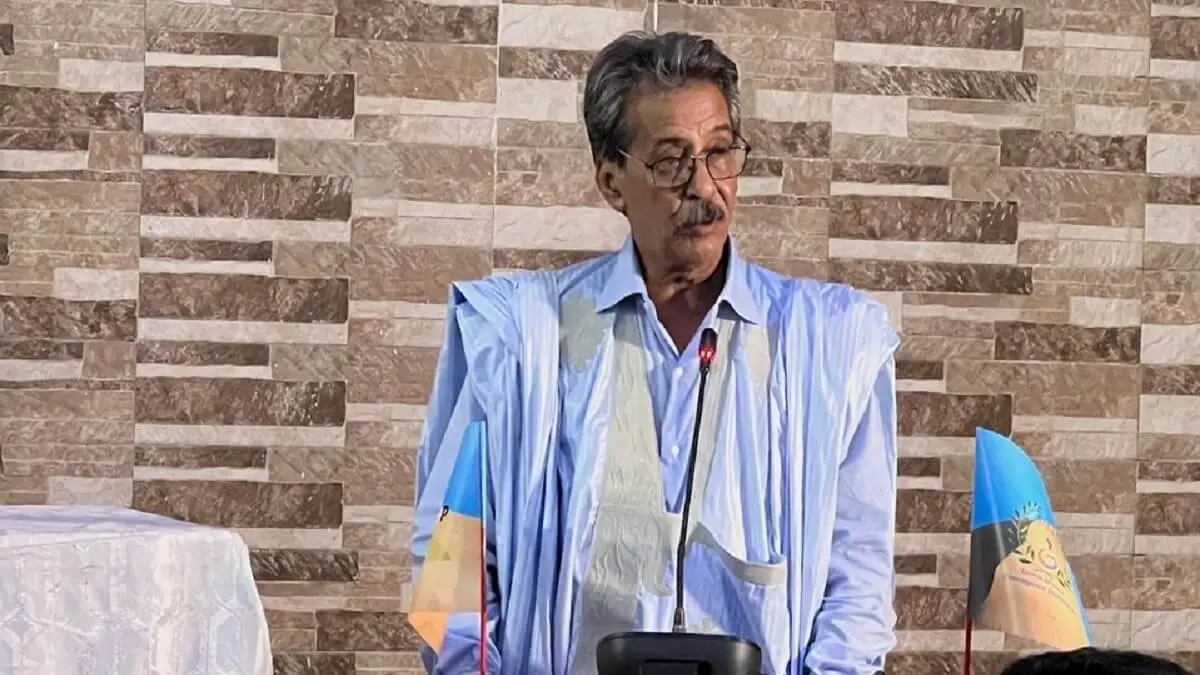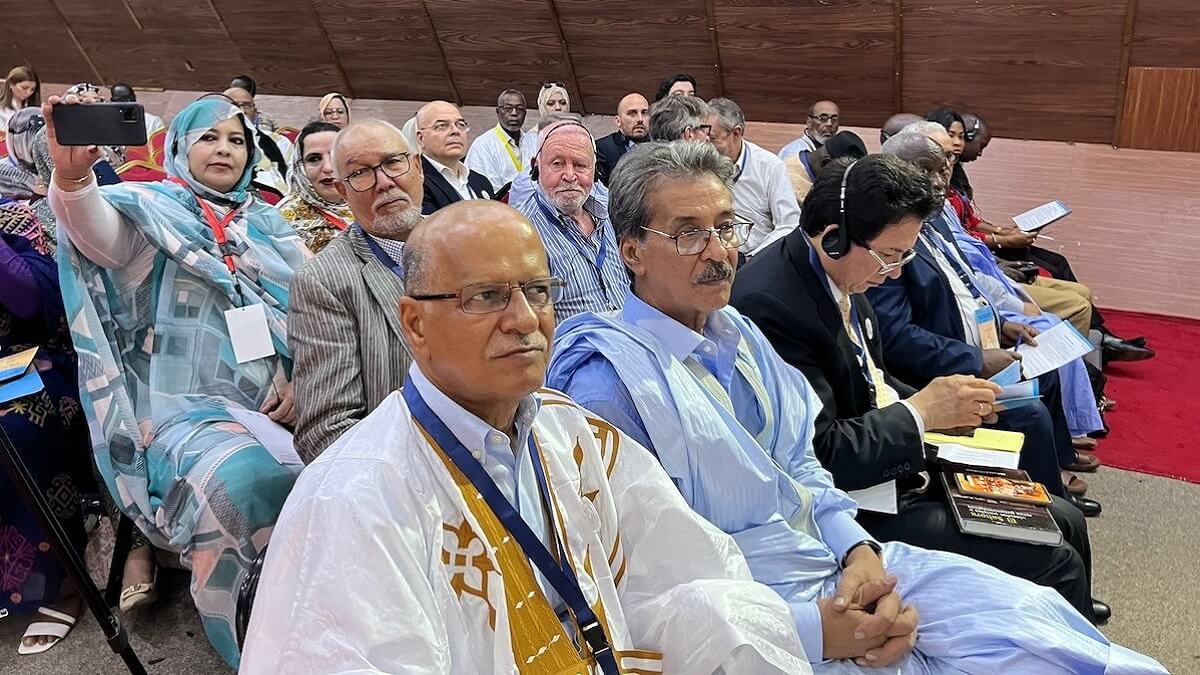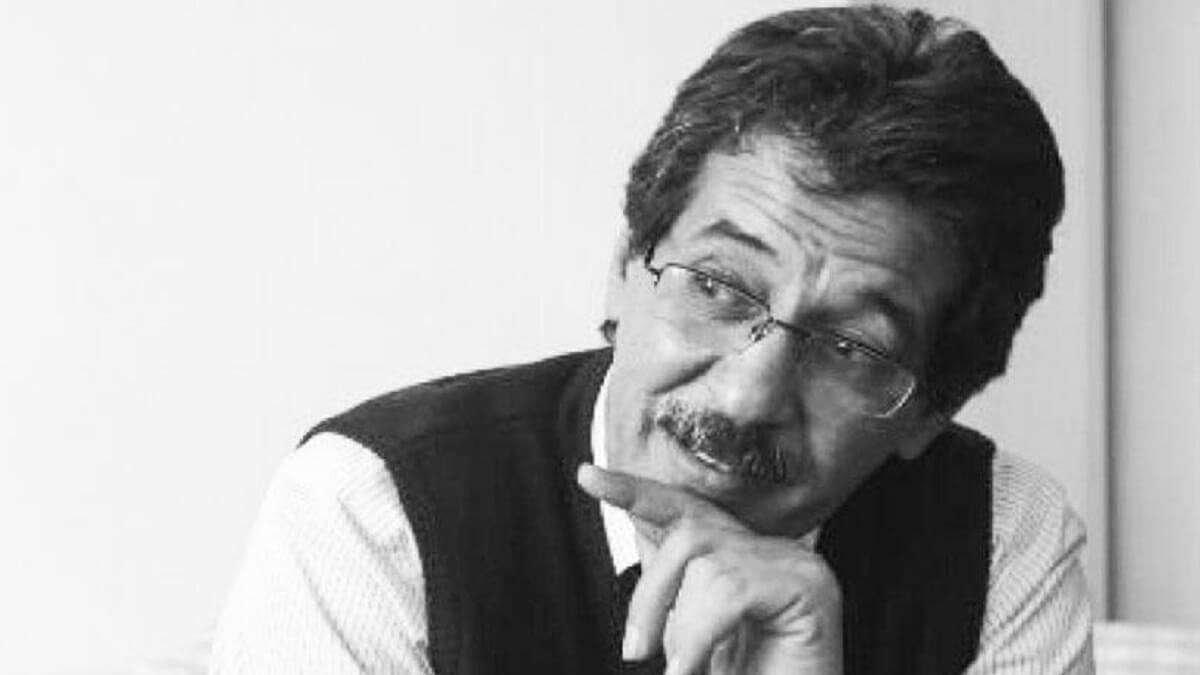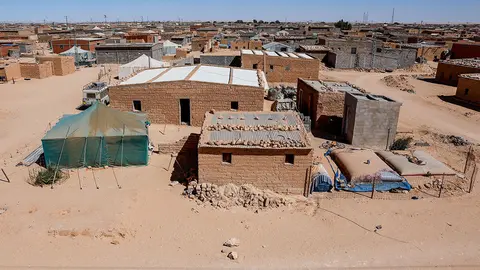The Sahrawi Peace Movement urges the UN to recognize its role in the Western Sahara peace process

- A new cycle of peace
- Pressure on De Mistura
- The Polisario loses strength
- The MSP sows hope
- Contact with Morocco for reconciliation with Algeria
The secretary general of the Sahrawi Movement for Peace, Hach Ahmed Bericalla, confirmed in an interview with Maroc Hebdo magazine the idea of the Special Envoy of the United Nations Secretary-General for Western Sahara, Staffan de Mistura, that the Saharawis cannot only have the Polisario Front, ignoring other voices such as the Sahrawi Movement for Peace (MSP), which brings together former leaders of the Front and Saharawis who have never held separatist positions and urges it to recognize the MSP's role in the negotiation process.
The MSP is very active abroad, defending the importance of the Moroccan proposal to political parties that have supported or continue to support the Polisario Front. In this regard, the MSP believes that the Moroccan proposal meets the criteria established with a view to achieving a viable formula for broad autonomy.
A new cycle of peace
The leader of the Sahrawi Movement for Peace made it clear that 50 years of suffering and instability in the region require the parties concerned, and in particular the Sahrawi people, to put an end to the tragedy and open a new cycle of peace, tranquillity and coexistence.
In this regard, he recalled that the international community had clearly emphasised that the solution must be political, without winners or losers, as it is a matter of goodwill through a compromise that guarantees the rights and interests of each party.
According to Bericalla, in view of the diplomatic developments towards a political agreement through the Moroccan autonomy proposal considered by the international community and the members of the Security Council, the only realistic basis for a viable solution, the reality on the ground cannot be ignored.
‘We have discussed and defended the Moroccan offer and the general outlines of a Special Statute for the Sahara. This is a reasonable proposal that regulates the relationship of interdependence between the future Sahrawi entity and the central government, and establishes the prerogatives of autonomy that meet internationally recognised standards,’ explained the MSP leader.
The essential condition, according to his statement, is that the autonomy resulting from the agreement must be solid, and that the powers and guarantees must be in line with the projections and expectations of the Moroccan monarchy in the 21st century.
When asked by Maroc Hebdo about the MSP's position following Staffan de Mistura's briefing to the UN Security Council on 14 April, Hach Ahmed Bericalla expressed his surprise at the excessive optimism of the thirteenth special envoy, who has promised to do in three months what he has not been able to do in three years.
"What should concern us most at this point is the lack of progress and the fatigue of the international community, which could lead to the end of MINURSO [acronym for the United Nations Mission for the Referendum in Western Sahara] before a solution is found. The new international situation is complex and places the Sahara dispute at the bottom of the global agenda," he added, urging commitment to reach an agreement as soon as possible.

Pressure on De Mistura
According to Ahmed Bericalla, it is very likely that the new Trump administration in the United States is putting pressure on De Mistura to activate the process of finding a solution. This would be based on the Moroccan autonomy proposal currently supported by France, Spain and Germany, among the major powers, and would fulfil his mission on the basis of a new and pragmatic approach, taking into account the developments of the last three years.
Bericalla placed particular emphasis on the idea that the people of the Sahara cannot have the Polisario Front as their ‘sole and legitimate representative’, ignoring other voices, and confessed that the referendum is no longer at the heart of the Security Council's resolutions.
‘We insist on the need to democratise the political process and include the MSP, which is committed to a peaceful approach and dialogue, in its consultations. We believe this is more coherent and useful than contacts with South Africa or Slovenia, even though the latter is at least a member of the Security Council,’ the Sahrawi representative stressed.
The Polisario loses strength
According to Bericalla, the Polisario Front is no longer what it was three or four decades ago, as thousands of its members have left and critical voices and protests against its leadership have multiplied. The Polisario's main problem is its democratic deficit and its inability to adapt to new times, remaining a totalitarian organisation based on a single ideology and leadership.
‘For the future, there are only two paths: to be consistent and realistic, and to commit to a possible political solution, as the Kurds in Iraq or Sinn Féin in Northern Ireland have done; or to suffer the same fate as the PKK in Turkey or ETA in Spain. I hope that common sense will prevail,’ Ahmed Bericalla pointed out.

The MSP sows hope
In a clarification on the videos circulating on social media about the protests in the camps, Ahmed Bericalla highlighted the potentially growing discontent and increasing weariness: people can no longer bear the conditions of exile or accept that their children are losing their lives in an absurd war against drones.
‘Times and attitudes have changed, and for most people, Polisario independence is no longer a dream or a cause worth shedding blood for. Young people are only concerned with obtaining a visa to emigrate to Europe or engaging in smuggling, drug trafficking or, in the worst case, falling into the hands of jihadist groups,’ he said.
On the influence of the MSP abroad, Bericalla pointed out that "although the Sahrawi Movement for Peace is recent, having been founded in 2020, it does have influence. We decided to break with the Polisario after losing hope of changing it from within. We took this step to abandon the “single party” system and instead embark on a peaceful path, promoting a multi-party culture in Sahrawi society."
‘Despite our emergence in the midst of the COVID epidemic, we have consolidated our position among the Sahrawi population, both inside and outside the region. The same is true in Mauritania and among the diaspora. We have already established contacts and relations with various political forces and governments. We have organised three major international conferences, the last one in the Canary Islands,’ Bericalla recalled.
‘The most significant event in our short history is the recognition by the 130 democratic political parties that make up the Socialist International, which we will join at the next Council in Istanbul. We have also received the support of the institution of Sahrawi notables,’ he added.
These are two facts which, according to Bericalla, ‘provide the MSP with convincing arguments in favour of the legitimacy we claim when we aspire to play a role in the political process aimed at finding a solution, whether through the UN or by other means’.

Contact with Morocco for reconciliation with Algeria
Ahmed Bericalla reaffirmed that "there is no reasonable motive for disturbing Algeria; we believe that we can help Algeria to distance itself from the radical positions of the Polisario without renouncing its interests or hindering the reconciliation that is urgently needed between the two great powers of North Africa, Morocco and Algeria, which is much easier and less complex than the Franco-German one".
‘We are willing to open a dialogue with the Algerian authorities to explain our project to them without interference, bias or distorted interpretations from Tindouf,’ he said.
In his reply on how the MSP intends to achieve recognition as representatives of part of the Sahrawi population, Ahmed Bericalla stated that representation can only be achieved through the ballot box and universal suffrage. It should be remembered that the Sahrawi population concerned is the original population of the territory administered by Spain until 1975.
‘If we take into account that the Sahrawi notables who are the heirs of the Sahrawi Assembly of the Spanish era have publicly supported our movement, and that some of them have even joined it, just like all the leaders of the MSP come from the territory, there is no opportunity for a photo,’ he said.
‘The Polisario, on the other hand, has always been led mainly by figures from other countries: Tindouf (Algeria), Zouerat (Mauritania) and Tan-Tan (Morocco). The founders of the Polisario were minor disciples of Che Guevara and Frantz Fanon, promoting rebellion in foreign countries.’
‘As for direct contacts with the Moroccan authorities, there have been none to date, but I believe they are inevitable and will happen sooner or later,’ concluded Ahmed Bericalla.










